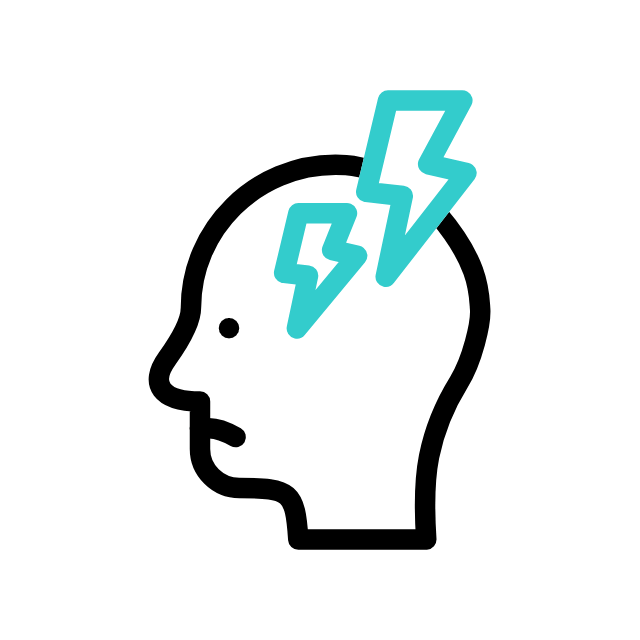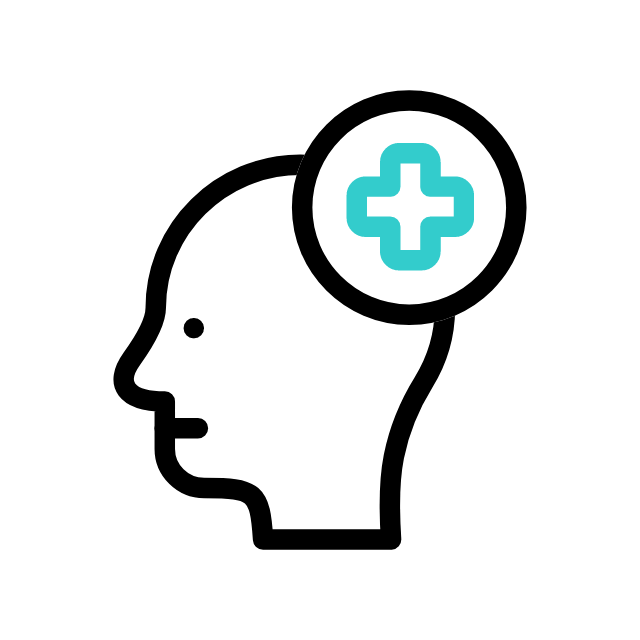Depression
Depression is a mental health disorder characterized by persistent feelings...
Depression is a real medical condition that can have a significant impact on a person’s life. It is not a sign of weakness or something that someone can simply “snap out of”. Instead, it is a serious mental health condition that can cause a wide range of physical and emotional symptoms that can affect a person’s ability to function in everyday life.
Common symptoms of depression can include feeling sad or down, loss of interest in activities that were once enjoyable, changes in appetite or sleep patterns, difficulty concentrating, feelings of worthlessness or guilt, and thoughts of death or suicide. It is important to seek help if you or a loved one is experiencing any of these symptoms. Treatment for depression can include a combination of therapy, medication, lifestyle changes, and support from family and friends.
With proper treatment, many people with depression can lead productive and fulfilling lives. It is important to remember that seeking help is a sign of strength and not a sign of weakness. If you or a loved one is experiencing depression, do not wait to seek help. With the right help and support, you can learn how to manage and overcome your depression.
Overview
Depression is a serious mental health disorder that affects millions of people worldwide. It is a condition marked by persistent sadness, lack of interest in activities, and a reduced ability to experience pleasure. People who are experiencing depression may suffer from a variety of physical and psychological symptoms, such as fatigue, difficulty concentrating, and changes in appetite and sleep patterns.
It is important to recognize the signs of depression and to seek help if you think you may be experiencing this condition. Left untreated, depression can have a significant impact on a person’s quality of life, so it is important to take action as soon as possible. Fortunately, there are many treatment options available for those who struggle with depression, including medication, psychotherapy, lifestyle changes, and support groups.
No matter what type of treatment you choose, it is important to remember that recovery is possible and that there is hope for those who are struggling with depression. With the right combination of treatment and support, you can find relief from the symptoms of depression and reclaim your life.
Signs and Symptoms
Depression is a serious mental health disorder that can have an enormous impact on a person’s life. It can manifest in a number of ways, including persistent sad, anxious, or empty mood, loss of interest or pleasure in activities once enjoyed, feelings of hopelessness or helplessness, fatigue and decreased energy, difficulty concentrating, remembering details, and making decisions, insomnia, early-morning wakefulness, or excessive sleeping, appetite and/or weight changes, aches, pains, or digestive problems that do not improve with treatment, irritability, and restlessness. In extreme cases, depression can lead to persistent thoughts of death or suicide.
It is important to recognize the symptoms of depression and seek help if you or someone you love is displaying any of these signs. Professional counseling, psychotherapy, and medication can all be effective treatments for depression. Additionally, lifestyle changes such as exercise, getting enough sleep, and eating healthy can help manage depression symptoms. With the right treatment and support, it is possible to overcome depression and lead a healthy and fulfilling life.
Risk Factors
Depression is a mental disorder that can affect people of any age and gender. It is a serious condition that can have a negative impact on an individual’s physical and mental health, as well as their relationships and everyday life. The exact cause of depression is not known, but there are several factors that can increase the risk of developing it.
Genetics can play a role in depression, as having a family history of the disorder can increase the risk of developing it. Stressful life events, such as the death of a loved one or a difficult relationship, can also trigger a depressive episode. Chronic medical illness can also increase the risk, as can substance abuse.
Personality can also be a factor in depression. People who have low self-esteem, are easily overwhelmed by stress, or are generally pessimistic are more likely to experience depression. Women are more likely to have depression than men, and the condition is most common in adults between 45 and 65 years old.
It is important to recognize the signs and symptoms of depression, such as feeling sad or hopeless, having a lack of energy or interest in activities, and changes in sleep or appetite. If you are experiencing any of these symptoms, it is important to seek help from a mental health professional. Treatment options such as medication, counseling, or lifestyle changes can help manage the symptoms of depression.
Treatment and Therapies
Depression is a serious condition that can affect individuals’ thoughts, feelings, and behaviors. Fortunately, there are a variety of treatments available that can help individuals manage their symptoms of depression. Cognitive Behavioral Therapy (CBT) is a type of therapy that focuses on changing negative thinking patterns and behaviors that contribute to depression. Interpersonal Therapy (IPT) is another form of therapy that focuses on improving communication and relationship skills to help individuals cope with depression. Dialectical Behavior Therapy (DBT) combines Cognitive Behavioral Therapy with mindfulness and acceptance-based strategies to help individuals manage their emotions and behaviors.
Mindfulness-Based Cognitive Therapy (MBCT) is another type of therapy that combines mindfulness and cognitive behavioral strategies to help individuals become aware of thoughts and feelings that contribute to depression. Psychodynamic Therapy is a type of therapy that focuses on uncovering unconscious conflicts and helping individuals understand how past experiences may be contributing to current symptoms of depression. Finally, antidepressant medications are used to help individuals manage the symptoms of depression. With the right treatment, individuals can manage the symptoms of depression and improve their quality of life.
Research and Statistics
Research and statistics are important for understanding the prevalence and causes of depression. Studies have found that depression is more common in women than men, and that the risk increases with age. Research has also revealed that there is a strong link between depression and other mental health disorders, such as anxiety and substance abuse.
Statistics show that people who are unemployed or living in poverty are more likely to experience depression. Research has revealed that certain lifestyle factors, such as lack of exercise, poor diet, and lack of sleep, can increase the risk of depression. Studies have shown that those who are socially isolated are more likely to experience depression.
It is important to recognize the signs of depression and to seek professional help. While there is no single cause for depression, understanding the risk factors and the warning signs can help to identify the condition early on and to seek the appropriate treatment. By recognizing the signs of depression and seeking help, people can manage the condition and lead healthier and happier lives.
How can i find help?
One of the most important things to do when dealing with depression is to reach out to a mental health professional. A mental health professional can provide the right kind of help and support that you need to manage depression. They can help you to understand your condition and develop strategies to cope with it.
Joining a support group can also be beneficial. Support groups can provide a safe and confidential space to talk about your struggles and experiences with depression. You can also connect with other people who understand what you are going through and offer support and encouragement.
Opening up to family and friends about your depression can also provide much-needed support and understanding. Letting your loved ones know what you are going through can help to break down the stigma and misconceptions about depression, and give you the support you need to manage it.
Exercise can also help to reduce stress and improve mood. Participating in activities that you enjoy can also help to lift your mood and reduce stress. Doing things that you find enjoyable and rewarding can help to distract from negative thoughts and feelings.
Getting enough quality sleep is also important. Lack of sleep can worsen symptoms of depression, so it is important to get enough rest. Taking some time to relax and do things that make you feel good can also help to manage your depression. Taking a break from daily stressors
Specialization

Career Guidance
Starting your career journey can be daunting prospect, especially if you are unsure of which direction to take...

Parenting Difficulties
It's completely normal to feel nervous and overwhelmed when you become a parent for the first time...






